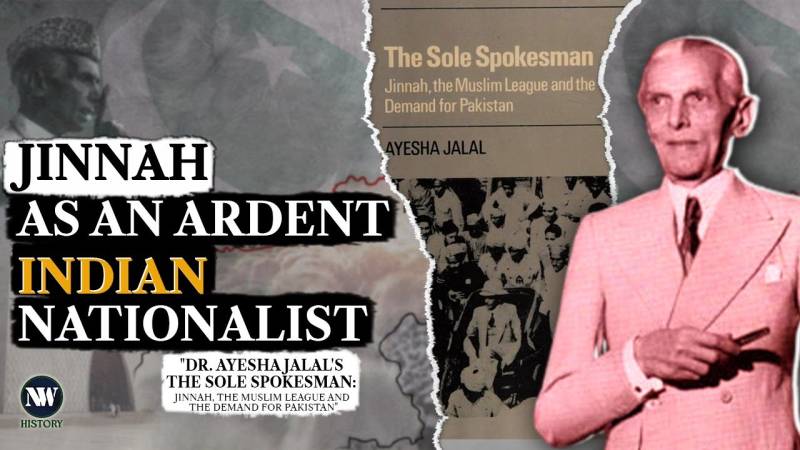Dr. Ayesha Jalal’s groundbreaking book, The Sole Spokesman: Jinnah, the Muslim League, and the Demand for Pakistan, published in 1985 highlights the the intricate political dynamics of pre-partition India and the role of the Muslim League under Jinnah's leadership makes this work an invaluable resource.
In this series, Yasser Latif Hamdani highlights the importance of the book and the in-depth research carried out by Dr. Jalal.
The book covers, Jinnah’s early political career where he sought to build a nationalist coalition with the Indian National Congress and was initially hesitant to support separate electorates for Muslims.
Dr Jalal writes, “Jinnah was one of the foremost proponents for a share of power for Indians in an all-India centre. Anxious to forge a common nationalist front against the British, Jinnah joined the Congress and regularly attended its annual gatherings.”
She further points out significantly that Jinnah never showed much enthusiasm for the principle of separate electorates granted to Muslims by Morley and Minto in 1909. Jinnah only joined the All India Muslim League in 1913 (seven years after the party’s founding) after having made his sponsors Mohammad Ali and Wazir Hasan solemnly assure him that “loyalty to the Muslim League and Muslim interest would in no way and at no time imply even a shadow of disloyalty to the National cause to which his life was dedicated.” In 1916, Jinnah persuaded the League and the Congress to agree upon a common scheme of reforms. At the League’s Lucknow session, Jinnah confessed that he had always been a staunch Congressman and had no love for sectarian cries.
However, Jinnah’s disapproval of the religious overtones of the Khilafat Movement and Gandhi’s tactics led to his resignation from the Congress in 1920.
The book states that when Gandhi declared his support for the Khilafat, he secured the allegiance of an array of Muslim ulema and political activists for his policy of non-violent non-cooperation.
This fusion of religion and politics left Jinnah cold in the wings. After 1919, the Khilafat Movement overwhelmed the League. Despite the fanfare of Hindu-Muslim unity, it eventually broke the fragile constitutional understanding between the Congress and the League that Jinnah had so painstakingly helped to construct.
In his later years, Jinnah repeatedly tried unsuccessfully to regain unity, which for a brief moment after 1916 seemed to promise so much for the nationalist cause.
Jinnah's return to India in 1934 marked a turning point, as he revived the Muslim League and refocused his political efforts. His careful negotiations with the Congress, aimed at securing Muslim majorities in key provinces while also addressing minority rights, underscore his belief that communal issues should be handled through political, rather than religious, frameworks.

